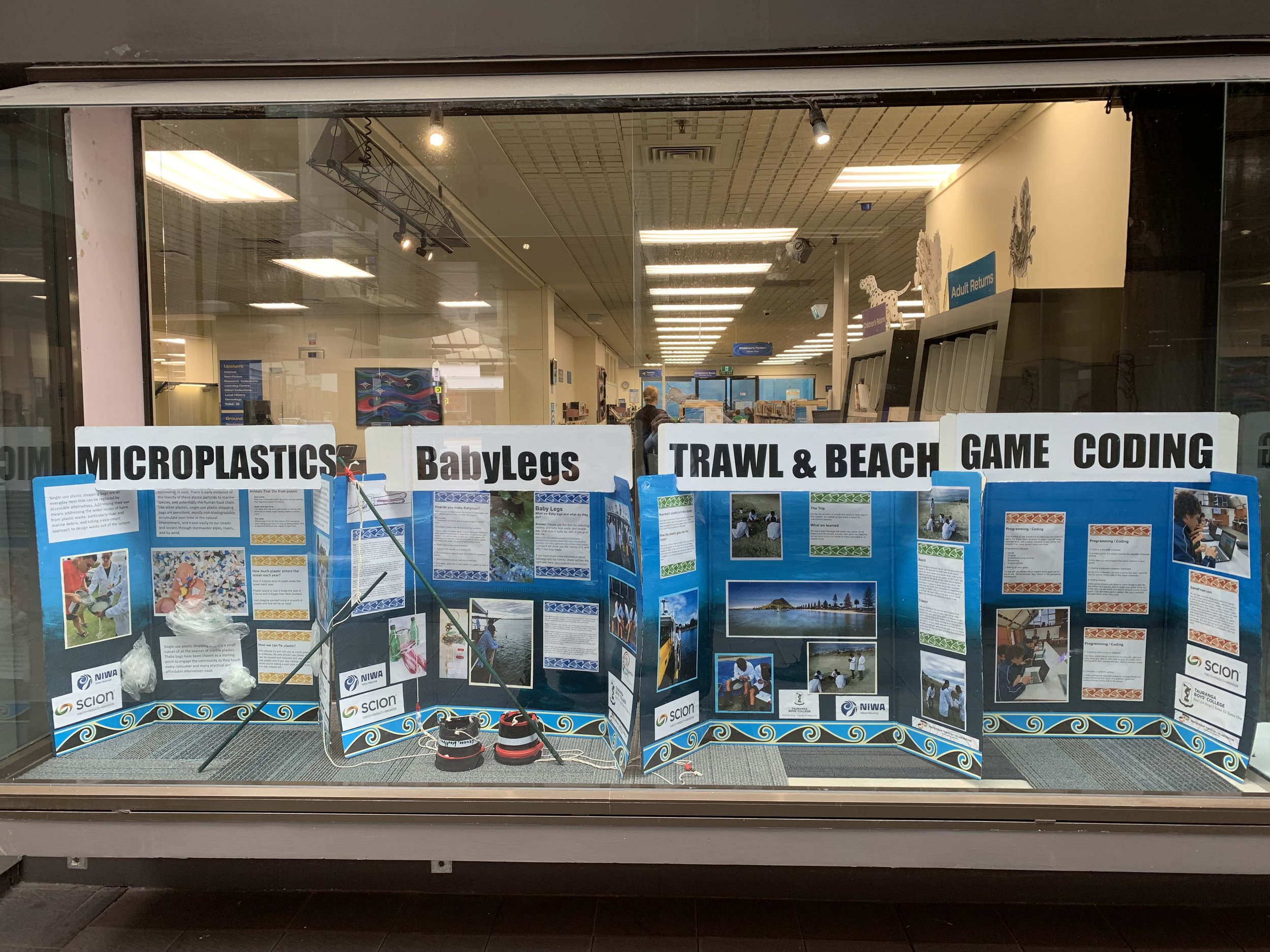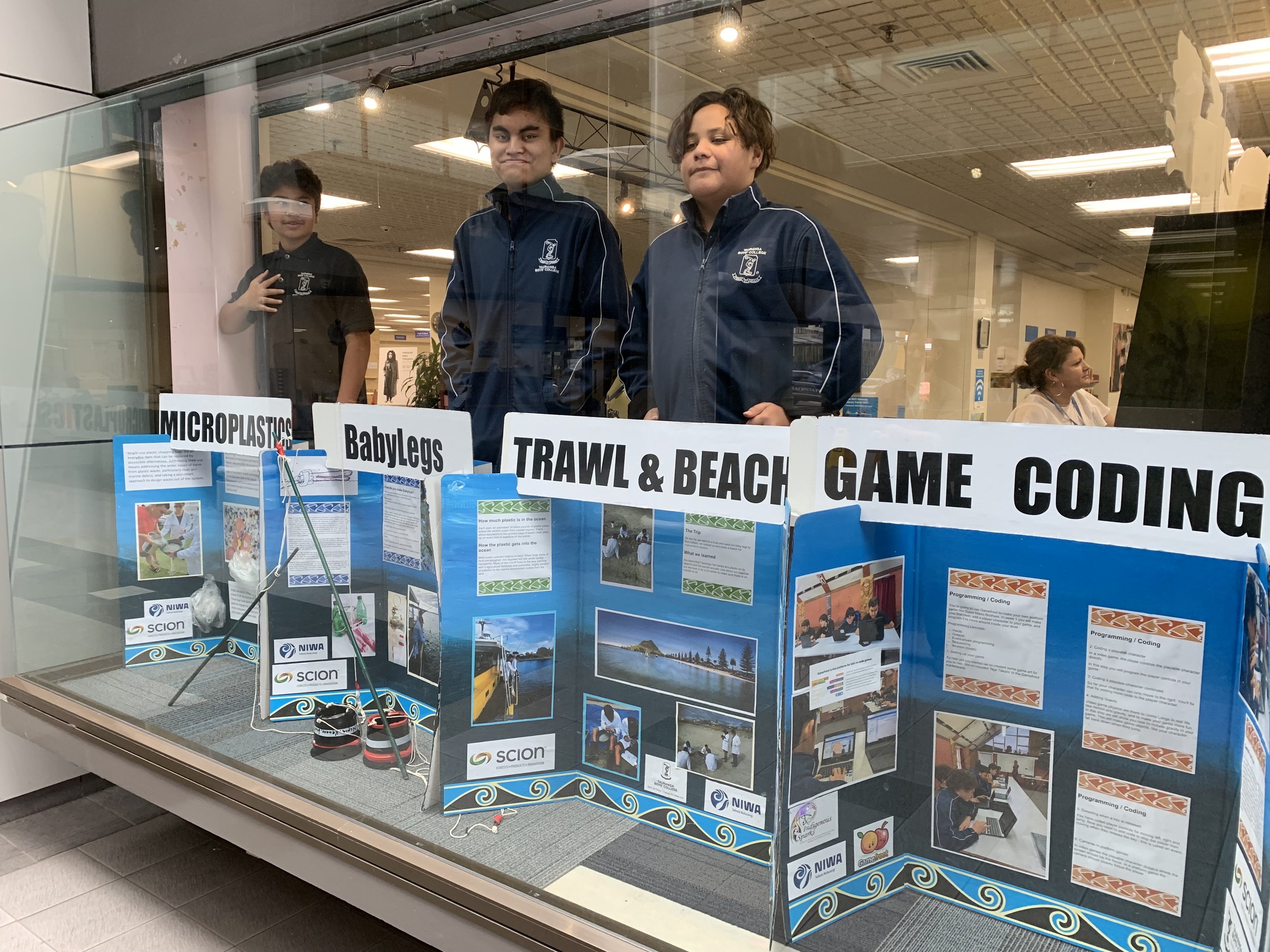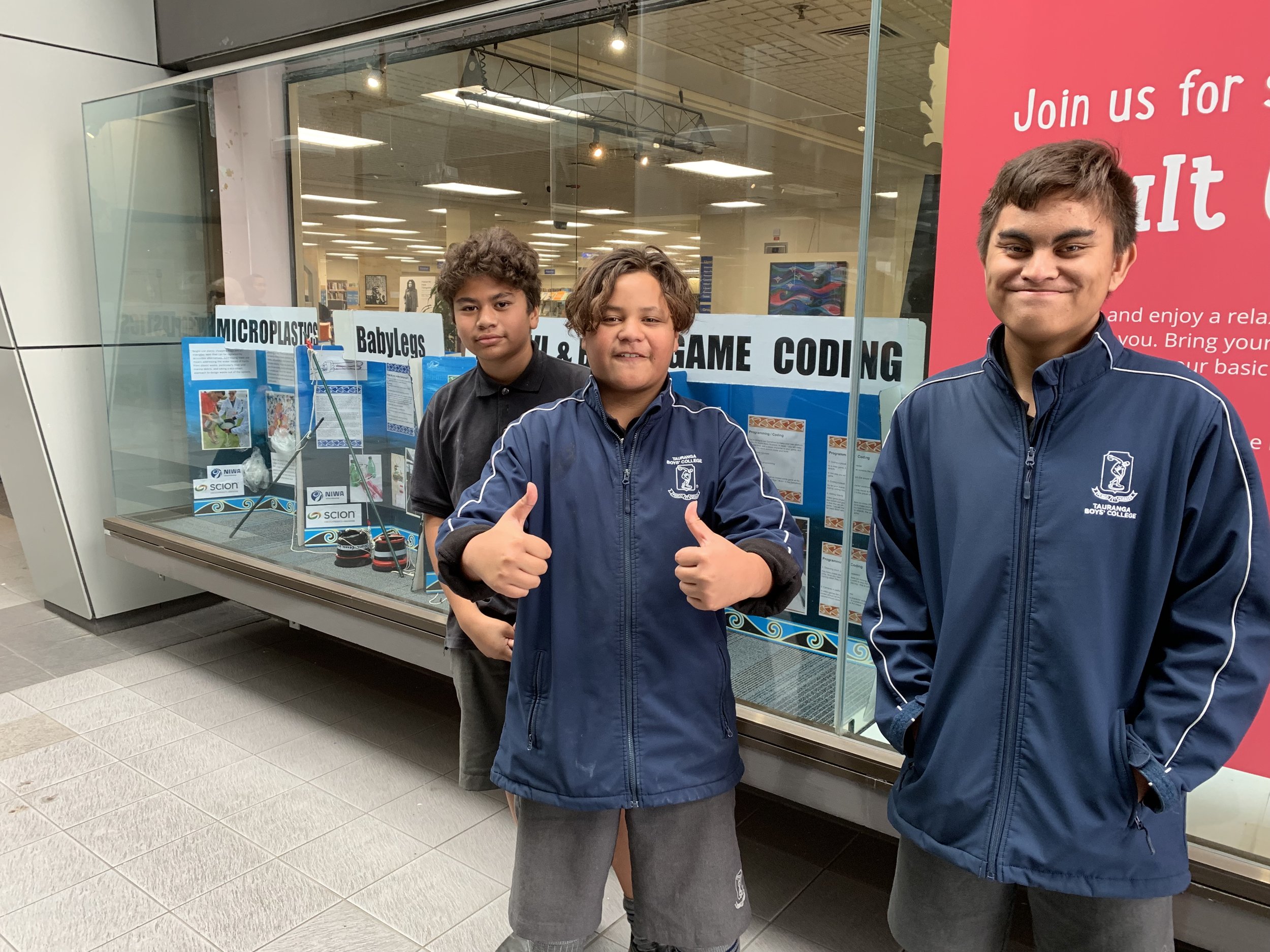Communicating science - Tauranga
The focus of our youth was toward making a difference and ensuring the wider community became aware of the dangers and challenges of microplastics in our environment. With an estimated 15 trillion pieces of microplastic debris in the world’s oceans, Dr Olga Pantos sees microplastics study as "vitally important".
On December 28, 2015, President Obama signed the Microbead-Free Waters Act of 2015, banning plastic microbeads in cosmetics and personal care products in the US. The Ministry for the Environment NZ banned plastic microbeads on 7 June 2018.
According to MFE website ‘the regulations prohibit, under section 23 of the Waste Minimisation Act 2008, the sale and manufacture of wash-off products that contain plastic microbeads for the purposes of exfoliation, cleaning, abrasive cleaning or visual appearance of the product. The intent is to capture two types of microbead-containing products that has the potential to harm both marine life and life higher on the food chain including humans’
Wash-off cosmetics such as facial and body exfoliants, toothpastes and heavy-duty hand cleansers
Abrasive cleaning products, including household, car or industrial cleaning products.
PTC’s interdisciplinary approach afforded the group the opportunity to engage practical science and impart knowledge to a wider audience. Schilbach et al (2010) describes the ways in which communicating ideas is linked to engaging learning and the benefits that can be derived The community, peers and whanau gaun added knowledge and understanding of environmental challenges facing our nation, whilst our youth have a voice and opinion on these issues. Students’ work are currently on display at Tauranga library.



